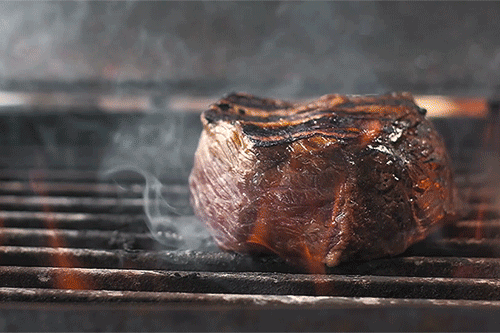Red meat consumption, colon cancer, and the environment
- Aug 12, 2021
- 3 min read
Updated: Jun 22, 2023
Consumption of red and processed meats has long been linked to an increased risk of colorectal cancer, according to epidemiological research.
A study conducted by the Dana-Farber Cancer Institute in Boston looked into the link between a red meat-based diet, DNA damage, and colorectal cancer. The findings would have confirmed DNA damage that could affect the Kras gene, specifically two mutations (G12D and G13D), as well as the PIK3CA gene, which are both linked to the onset of colorectal cancer.
For the first time, researchers have discovered an alkylating mutational signature in colon cells, which they relate to red and processed meat intake. The discovery of this mutation might have far-reaching implications: for example, if it were feasible to identify those genetically susceptible to alkylating damage by screening, they could be safeguarded against the dangers associated with a diet high in red meat. Colorectal cancer is caused by a habit that, when combined with other hereditary factors, contributes to the disease's onset.
Researchers at Dana-Farber Cancer Institute in Boston sequenced the DNA of 900 patients who had previously provided advice on their diet and lifestyle in the years leading up to their diagnosis of colorectal cancer, providing the evidence that led to the definition of the link between mutations and red meat consumption, as well as an increase in correlated mortality.
Colorectal cancer is the third most common disease in males and the second most common cancer in women globally. Obesity, a sedentary lifestyle, and lifestyle all have a part in the start, development, and progression of the illness, as well as obesity, sedentary lifestyle, and lifestyle.
In fact, according to research conducted by Andrew T. Chan, epidemiologist, an expert in digestive system disorders, and a professor at Harvard University, a high-fiber diet is linked to a decreased risk of colon cancer.
In terms of carcinogenicity, red meat is mostly affected by processing procedures (in reality, harmful chemicals like nitrates or nitrites might be added) and cooking methods (it seems that cooking at high temperatures, for example, grilling or frying, determines the formation of potentially carcinogenic substances).
A better diet might prevent 45% of colorectal cancers, according to Imperial College London researchers, who discovered that dietary modifications dramatically lower the risk of bowel cancer and that ingesting 100 grams of red meat per day raises the risk of colon cancer by 17%. While intake of fewer than 500 grams per week does not raise risk, consumption of more than 500 grams per week does.
Foods that are low in illness risk and have a minimal environmental effect, such as cereals, fruits, vegetables, and legumes, have become more popular in global diets. In reality, we are well aware of how harmful red meat breeding and manufacturing are in terms of emissions and pollutants.
The advantages of reforming the meat production system would include not just a reduced environmental effect, but also a more equal global food chain.
The availability of beef per capita has more than quadrupled since 1961. As a result, every individual in the globe now has access to twice the amount of meat as their parents did.
"Changing the diet to change the world," as the saying goes, and gradually lowering the incidence of colorectal cancer, which is one of the leading causes of death, especially among the under the 50s, and has nearly doubled in the last 30 years, owing to the increased consumption of red meat and the excessive consumption of soft drinks.
The American Cancer Society has previously suggested that screening be lowered to 45 years old rather than 50, and colon cancer is becoming more common in those under 30 in Europe as a result of red meat consumption and increased daily alcohol use.
Screening and a Mediterranean diet are effective preventative measures. “Quod me nutrit me destruit,” as the Latins said, “what feeds me destroys me.”
What we consume makes us who we are. And our food choices, particularly the elimination of excessive red meat intake, can lower the risk of gastrointestinal neoplasms and, we now know, make a difference in the formation and progression of colon cancer. Straight to the point.
Dr. Antonio Giordano is the President and Founder of the Sbarro Health Research Organization (SHRO), which conducts research to diagnose, treat and cure cancer, cardiovascular disease, diabetes and other chronic illnesses.

Comments